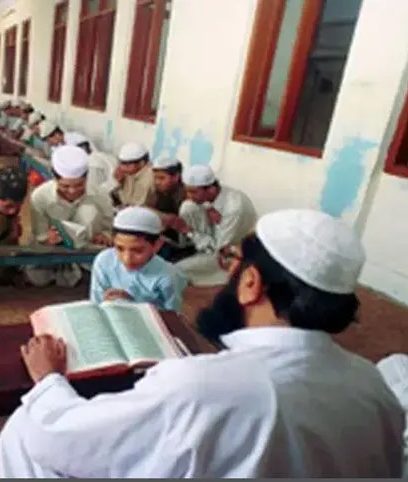
Supreme Court on UP Madrasa Eligibility: The Supreme Court upheld the constitutionality of the Uttar Pradesh Madrassa Education Board Act, 2004, giving relief to 17 lakh students. The Supreme Court on Tuesday invalidated the Allahabad High Court order declaring Uttar Pradesh's Madrassa Act constitutionally valid.
Supreme Court Chief Justice D.Y. Chandrachud and Justice J.B. A bench of Pardiwala and Manoj Mishra set aside the March 22 verdict of the high court and directed the madrassa to continue functioning. The Allahabad High Court termed the Education Boards Act 2004 as 'unconstitutional' and a violation of the principle of secularism and ordered the Uttar Pradesh government to admit all madrassa students in general schools.
What did the Supreme Court say?
The Supreme Court ordered that the provisions of this law are meant to standardize the standard of education prescribed in madrassas. The Madrassa Act cannot interfere in the daily functioning of madrassas. It aims to protect the rights of minorities in the state of Uttar Pradesh and is in line with the positive obligation of the State to ensure that students pass and earn a decent livelihood. Madrassas in Uttar Pradesh will be able to continue their operations with the standardized education standards of the state.
What order did the High Court give?
Allahabad High Court, while giving its verdict on Madrasa Act on March 22, said that this Act violates the Constitution and the rules of secularism. An application was filed in the Supreme Court on behalf of Anjum Qadri, Managers Association Arabia, All India Teachers Association Madaris Arabia, Managers Association Arabic Madrasa New Market and Teachers Association Madaris Arabia Kanpur.
The Supreme Court has reviewed the provisions of the Madarsa Act and asked to make necessary amendments. But it is considered inappropriate to cancel it completely.
What did DY Chandrachud say?
Chief Justice of India D.Y. Chandrachud, while giving this important decision, said that secularism means live and let live. Does RTE not specifically apply to madrassas. India is a religious country. So that religious education can be included in education. You cannot destroy 700 years of history by repealing this law.
AIMPLB appreciated the Supreme decision
Maulana Khalid Rashid Firangi, Imam of Eidgah in Lucknow, the capital of Uttar Pradesh and member of All India Muslim Personal Law Board, while reacting to this decision, said that this decision is a wave of happiness for the people associated with it. With Madrassas. The draft of the UP Madrasa Act was prepared by the Uttar Pradesh government itself. And how can any act made by the government be unconstitutional? We have already said that apart from Islamic education, we also provide modern education in Madrassa.
 look news india
look news india